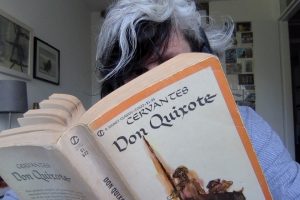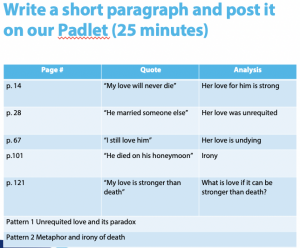
It has been a good few months that we have redirected several of our activities towards our screens and the magical and mystifying world of connectivity and re-imagined connectedness. Some of us have found comfort in a pyjama-dominating world, some os us have resisted the domestic shadows of restlessness with new projects, some of us have re-defined space and time and binge-watching, some of us have re-invented their working life and close relationships.
I do not wish to sound ungrateful. I have had the privilege of having everything I need at home (minus the toilet paper in the early days of the pandemic), and I have been able to work from home, which is (partly) what I used to do. Between travelling to different places and working with different people, that is. I have done my best to see this new situation as an opportunity, the levels and complexities of which I may never fully assess or even appreciate, but there is this feeling of discontent, of something missing in what I do and how I reach the world from my little papercave (AKA my study, AKA a room of my own).
As I was preparing from my first virtual workshop last week, this feeling of incompleteness, of worry and unease found the words to express itself and I thought: “The people I interact with, do they know it’s me? And, when I am not in the room, who am I?” Maybe others perceive me as a kind of avataric persona of myself or maybe the encoding and decoding processes of virtual interaction are not that different from meat-space interactions, and I am just a more boring or a more annoying version of myself. Can we really be seen and heard on Zoom?
It could have been the beginning of a profound existential crisis that could impact every member of my family, my dog included. Thankfully, the urgent and the important task of leading workshops for teachers had to take precedence and what better distraction than to turn your attention to whether others are seen and heard by you? Especially those who have not had the option/choice/luxury/privilege/time/energy to worry about who they are when they are not in the classroom with their students.
The question may still be there, in the back of my mind, but the amazing professionals I have been -virtually- working with have inadvertently and unintentionally given me some a very creative answer to my question in response to a writing task I set for them.

“In Anna Androulaki-Woodcock’s novel “Romance at the Workshop” the theme of unrequited love and its paradox can be seen when character Anita proclaims, during the third day of Zoom meetings “He married someone else?!” (p.14) It is during this chapter that we learn Anita’s past betrothed didn’t really “die on his honeymoon” but instead eloped with Anita’s evil twin sister, Scarlett. (p.101) Throughout the text we know Anita’s passion is unwavering as she announced at day one’s meet-and-greet, within the breakout rooms that her “love is stronger than death” (p.121). Lee, who fakes his death live on Zoom, day four of the IB training, is pressured into doing so by Scarlett as this is the only way Scarlett can seek revenge for Anita’s past wrongdoings, that are never revealed but only alluded to by the narrator. Lee shouts “my love will never die” to Anita during the fake boating accident and we know as readers this to be true. The irony seen in “Romance at the Workshop” is that Anita and Lee are truly, in love but never find it…”
The moral of the story? When I am not in the room, I can be who others imagine me to be. Win-win, and maybe my masterpiece can be a best-seller.
As for the new normal (and its new cliches) and this online/virtual existence, I see yonder “thirty of forty hulking giants. I intend to do battle with them and slay them”.
